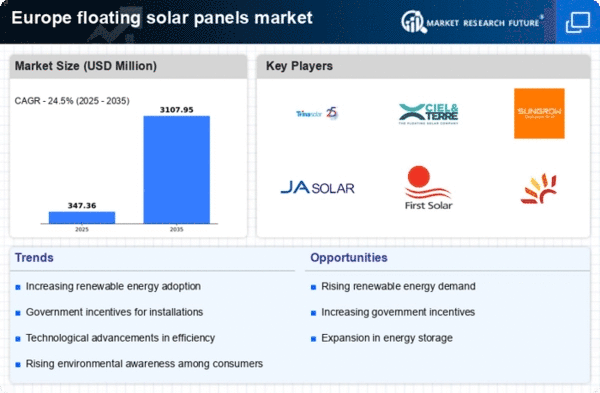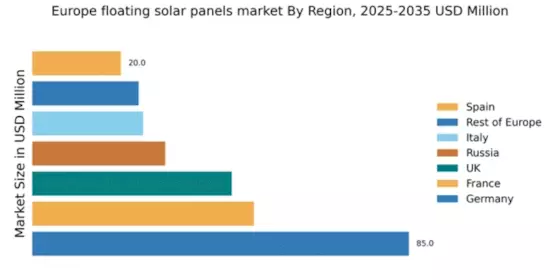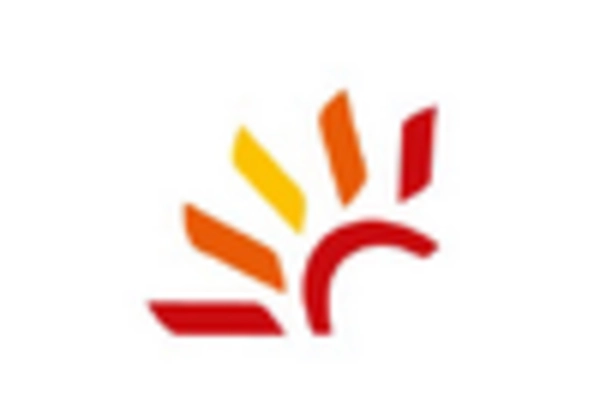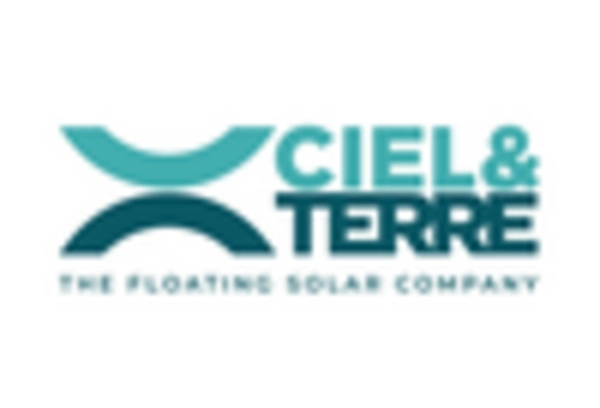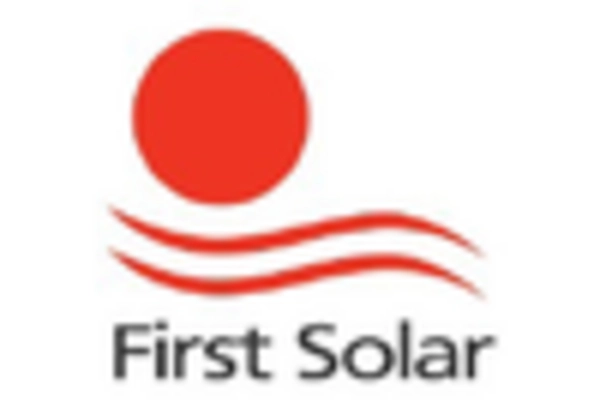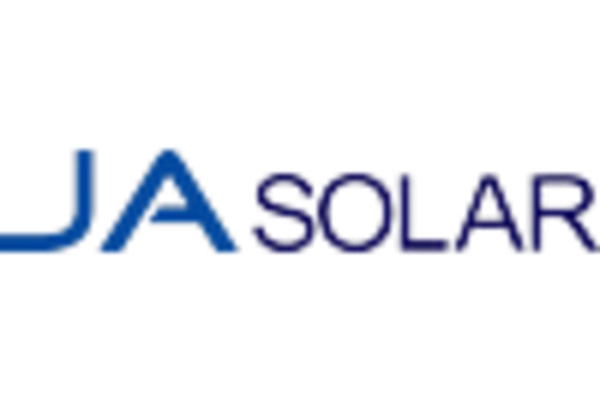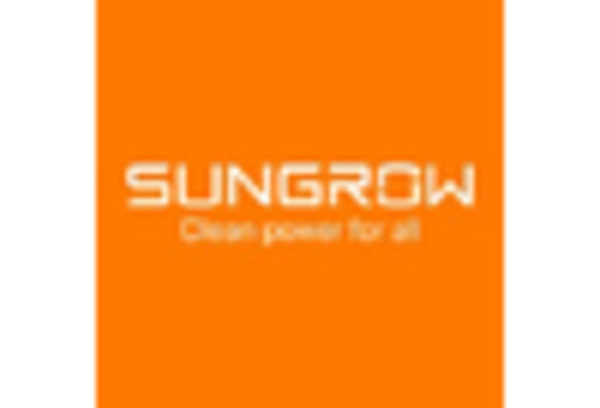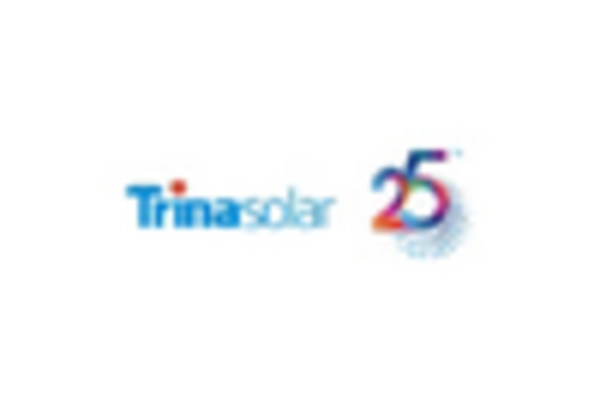Rising Energy Demand
The floating solar-panels market in Europe is experiencing a surge in demand for renewable energy sources. As countries strive to meet their energy needs sustainably, the adoption of floating solar technology is becoming increasingly attractive. In 2025, energy consumption in Europe is projected to rise by approximately 1.5% annually, necessitating innovative solutions to meet this demand. Floating solar panels, which can be deployed on bodies of water, offer a unique opportunity to harness solar energy without competing for land resources. This trend is particularly relevant in densely populated areas where land availability is limited. The floating solar-panels market is thus positioned to play a crucial role in addressing the energy gap while contributing to environmental sustainability.
Environmental Benefits
The floating solar-panels market in Europe is significantly driven by the environmental advantages associated with this technology. Floating solar installations can reduce water evaporation from reservoirs, thereby conserving water resources, which is particularly vital in regions facing water scarcity. Moreover, these systems can help mitigate algae growth in water bodies, improving water quality. The European Union has set ambitious targets to reduce greenhouse gas emissions by at least 55% by 2030, and floating solar technology aligns well with these goals. By utilizing existing water surfaces, the floating solar-panels market contributes to a reduction in land use and habitat disruption, making it an environmentally friendly alternative to traditional solar installations.
Cost-Effectiveness of Installation
The floating solar-panels market in Europe is witnessing a trend towards cost-effective installation solutions. The initial investment for floating solar systems has decreased significantly, with costs dropping by nearly 20% over the past few years due to advancements in technology and increased competition among manufacturers. This reduction in costs makes floating solar panels a more viable option for energy producers and investors. Additionally, the operational and maintenance costs of these systems are often lower than traditional ground-mounted solar panels, as they are less susceptible to damage from weather conditions. The floating solar-panels market is thus becoming an attractive investment opportunity, particularly for utility-scale projects.
Government Initiatives and Policies
The floating solar-panels market in Europe is bolstered by supportive government initiatives and policies aimed at promoting renewable energy. Various European countries have implemented frameworks that encourage the development of floating solar projects, including grants, subsidies, and tax incentives. For instance, the European Commission has allocated substantial funding to support innovative renewable energy technologies, including floating solar. These initiatives not only enhance the financial viability of projects but also foster collaboration between public and private sectors. The floating solar-panels market is likely to benefit from these favorable policies, which aim to accelerate the transition towards a low-carbon economy.
Technological Advancements in Design
The floating solar-panels market in Europe is significantly influenced by ongoing technological advancements in design and materials. Innovations such as lightweight, durable materials and improved anchoring systems are enhancing the efficiency and longevity of floating solar installations. These advancements allow for better performance in various water conditions, making floating solar panels more adaptable to different environments. Furthermore, the integration of smart technology, such as monitoring systems and energy management software, is optimizing energy production and consumption. As these technologies continue to evolve, the floating solar-panels market is expected to see increased adoption and deployment across Europe, further solidifying its role in the renewable energy landscape.


